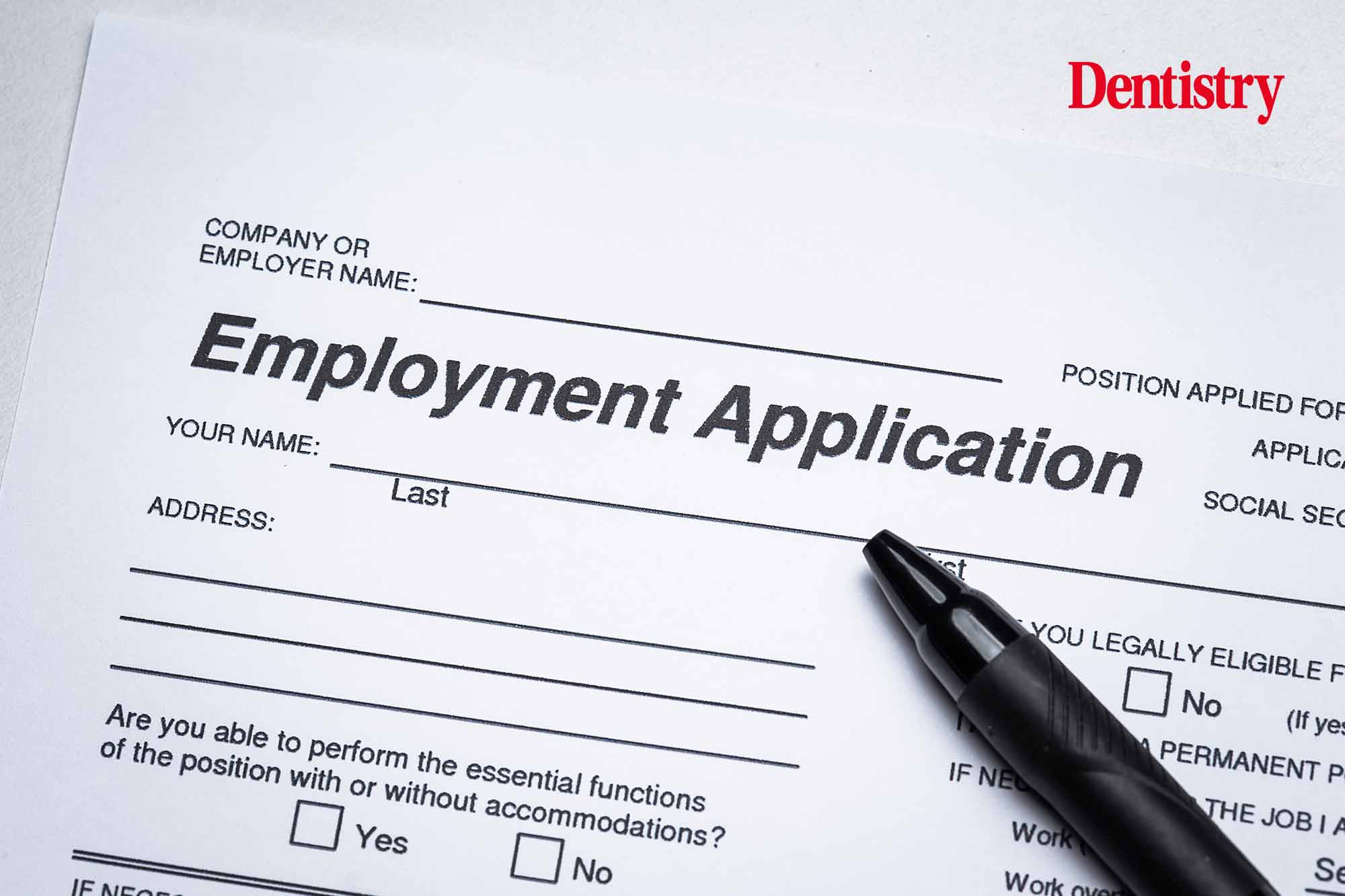
We hear from a London-based practice owner about the realities of trying to recruit dental nurses and what they think needs to change.
We’re now finding it almost impossible to recruit dental nurses. We have an ad on indeed.com advertising a salary of £27K – that’s more or less the national average across all jobs – and yet have only had three applications.
One was unqualified despite us specifically stating that we needed a qualified nurse and neither of the other two responded to several emails inviting them for interview so, in the end, had to be rejected.
We’re now turning to apprenticeships, effectively to ‘grow’ our own – ironically at a much lower salary than the £27K we’re offering for a qualified nurse. But that’s not an ideal solution particularly if we don’t have a qualified nurse to mentor and motivate the trainee(s).
Sadly, this problem has been visible for some time. When we started our business in 2008, we had plenty of nurse applicants because, in those days, nurses were plentiful.
It was just at the time the GDC introduced registration and registered pretty well every nurse based on their experience.
Depleting supplies
Unfortunately, the GDC seems to view its role solely as a regulator (with a mission to tighten regulation at that). It does not seem to agree that part of the role of regulation is to ensure the availability of whatever it is that’s being regulated.
It doesn’t take a genius to work out that if less goes in at one end than comes out at the other, there’s an imbalance and supplies will be depleted.
In a predominantly female role, many dental nurses do choose to start families and a proportion may choose to not to go back to work at all or to seek part-time work as an alternative.
But thanks to the GDC’s regulation, we can no longer hire nurses unless they’re either qualified and registered or on an approved training scheme. So I believe we’ve got fewer joining the profession and the same number leaving, with the completely predictable outcome that dental nurses would eventually go into short supply.
And our experience over the past 15 years has already borne this out. As I said, back in 2008, all we had to do was put an advert in the local paper and we had the pick of candidates.
Dentistry’s top stories
‘Discernible difference’
As time went on, we saw the number of applicants gradually drop each time we placed an advert and by a couple of years ago, we were lucky if we got one suitable applicant. Now even that has dried up.
Of course, the answer is just to pay more so that we can entice nurses to switch practices. But to pay more, we have to put up prices which, in the current economic climate, is risky given that private dentistry is one of the first things to take a hit in a recession.
It’s even worse for NHS practices who have no power to put up prices.
I don’t want to be a pessimist but until the GDC takes a good look at this, it’s very difficult to see how things will change.
We have to remember that, in the surgery, it’s the dentist – not the nurse – who has overall responsibility.
We need competent nurses of course, but the old system that operated prior to DCP registration seemed to work fine.
I don’t see any discernible difference in competence between the nurses we used to employ whose training was solely on the job, and those now who have to attend costly training courses.
Follow Dentistry.co.uk on Instagram to keep up with all the latest dental news and trends.


